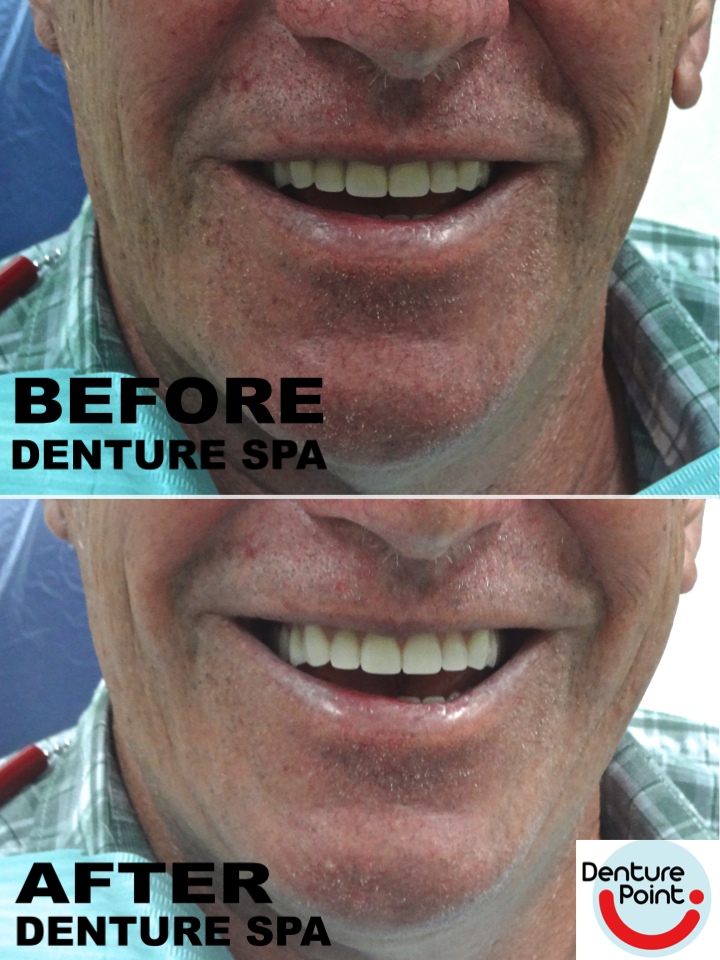DenturePoint instructions on how to look after your mouthguard and/or nightguard.
First things first:
What is a difference between a mouthguard and a nightguard?
A mouthguard also known as a sportsguard is an important piece of equipment for safeguarding your teeth - protecting them from breaking or chipping. It will also prevent damage to the soft tissue of the jaw.
A nightguard - is a dental protector for night time teeth grinding and clenching. Teeth grinding is also known as bruxism.
Keeping your mouthguard and nightguard clean is essential.
If you don't give your mouthpiece proper attention, it won't take long for it to become unhygienic, quite smelly and unsightly. If you take a proper care, on the other hand, it will last you a lot longer.
Here is a list of DO's and DON'T's that will ensure your guard's peak performance.
- Rinse it off with water.
Always clean your appliance after every time you wear it. If you have no time to scrub it just rinse it off with tap water after every use. Dental plaque and debris may accumulate during prolong wear. - Scrub it.
Scrub it with a bit of toothpaste and your toothbrush on regular basis, ideally after every use. - Keep it dry.
After scrubbing let it dry out thoroughly. If you don't, it can become an active breeding ground for bacteria. - Soak it.
A number of manufacturers make products for cleaning dentures and orthodontic retainers which produce an effervescent effect and through bubbling the appliances get cleaned. You can use those products for your mouthguards and nightguards once a month for a more thorough clean. - Maintain it.
Keep it in a hard ventilated case when not used. The hardness of the case will protect it from physical damage and the ventilation holes will allow it to dry out thoroughly between each use.
OTHER:
- Keep it away from heat - do not allow your guard to sit in direct sunlight or be immersed in very hot water.
- Do not chew on your guard - this is a bad habit . Damage through chewing may compromise the level of protection the guard should provide.
- Do not make any changes yourself. If it’s uncomfortable please take it back to your dental prosthetist and they will fix it for you at no charge.
- Do not drink any coloured drinks such as Cola or tea while wearing your guard. Do not smoke. Those activities may stain your guard. Also any sugary drinks and foods should be avoided or you will be exposing your teeth to an increased risk of cavities.
- And last but not least: keep your guard away from your dog. The dogs get attracted by the smell of your guard and if left within their reach they will instantly change it into an expensive chew toy.
WHEN TO GET A NEW GUARD?
- Please inspect your mouthguard and nightguard regularly. If you discover any unwanted changes you might need to have a new one made. They should be replaced annually but children with a mixed dentition - teeth still growing - might need a replacement more often. A custom made and fit mouthguard should stay snug and secure around your teeth.
The general rule of thumb is that if it's not sitting in your mouth securely, it's not protecting you. - For nightguards we recommend a replacement every 3-5 months depending on how heavy a night grinder you are.
REMEMBER: Cleaning your nightguard or mouthguard should never be neglected! Keeping bacteria and fungi from growing on your dental appliances will also keep them from entering your body and affecting your health!












